What CJ said?
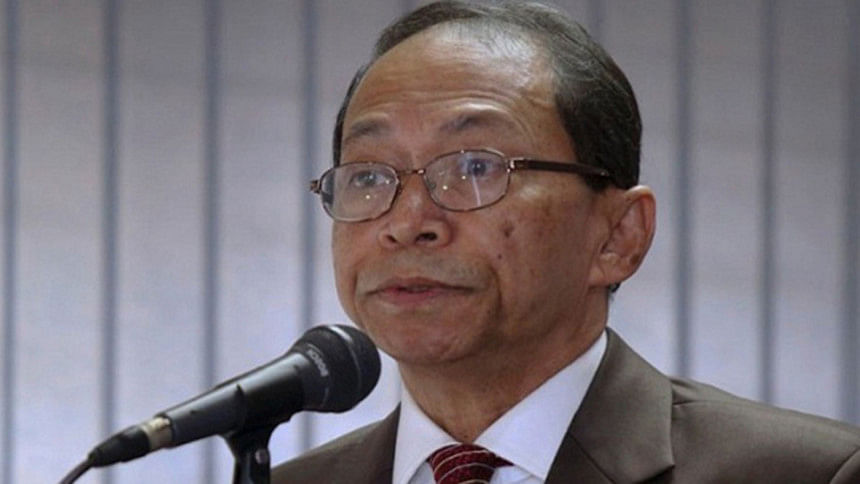
Some ministers and leaders of the ruling party have been accusing Chief Justice Surendra Kumar Sinha of undermining Bangabandhu Sheikh Mujibur Rahman through some remarks in the 16th constitutional amendment case verdict.
Read from the verdict what the chief justice said.
"So far as the constitution of the People’s Republic of Bangladesh is concerned, I have already mentioned the historical background of our constitution and the preamble which aptly contains the reflection of the spirit of the national liberation struggle and the sacrifice of the lives of the people. In the preamble it is stated; ‘We, the people of Bangladesh, having proclaimed our independence …. through a historic struggle established independent, sovereign ….. which inspired our heroic people to dedicate themselves to and our brave martyrs to sacrifice lives in, the liberation struggle.’
In the preamble it also indicated the future principles of the State that ‘through a democratic process a socialist society, free from exploitation - a society in which the rule of law, fundamental human rights and freedom, equality and justice, political, economic and social dignity, will be secured for all citizens.’ (emphasis supplied) It was also declared to safeguard, protect and defend the constitution and maintain the supremacy as the embodiment of the will of the people of Bangladesh so that we may prosper in freedom.
This preamble is completely different from those of other countries. I mentioned earlier that there is a bit similarity as regards the independence of our county with USA. Though in the preamble we notice the expression ‘We the people’ in other constitutions as well, but the connotation and denotation of the word ‘We’ is not same in all documents.
of American independence was also achieved by sacrifice of lives, but in that preamble no such details have been mentioned as in ours. It simply mentioned “we, the people of the United States, in order to form a more perfect union, establish justice, insure, domestic tranquility, provide for the common defence, promote the general welfare, and secure the blessings of Liberty to ourselves and our Prosperity, do ordain and establish this Constitution for the United States of America.
The first word of the first sentence of the preamble of our constitution of the People’s Republic of Bangladesh is “WE”. The strength of a nation lies in this word and spirit of “WE”. This ‘weness’ is the key to nation building. A community remains a community unless all those who belong to the community can assimilate themselves in this mysterious chemistry of ‘weness’, the moment they are elevated to this stage they become a ‘nation’. And our Founding Fathers very rightfully understood, realized and recognised this quintessential element of nation building and this is why they wrote the first sentence of the constitution “We, the people of Bangladesh, having proclaimed our independence on the 26th day of March, 1971 and, through a historic struggle for national liberation, established the independent, sovereign People’s Republic of Bangladesh.”
These words mean that people are the source of all supreme power; People are the true achiever of the sovereignty and hence the constitution. The members of the Constituent Assembly were all people’s representatives. The preamble, therefore, indicates that the legal basis of our constitution is the people-the ultimate source of all power.
In the history of military no war was ever won with so small and meagre supply of arms, with so small numbers of trained fighters, as the people of Bangladesh did in 1971. We fought a ferocious military force equipped with all modern weaponry and trained personnel - we fought against them with courage and valour - what really gave us the advantage over them? Were it arms and weapon only? The answer is No. It was the stupendous courage of ‘We the people’ of this land - it was the readiness for supreme sacrifice if necessary and unsurmountable feeling of commonness for fellow people of this land that made us unconquerable by the Pakistani military power. And this unparalleled feeling for commonness has been rightly reflected in the very first word of our supreme social document - the constitution.
Our Founding Fathers keeping in mind of our struggle against the tyrannical rulers gave all powers of the Republic upon the people under article 7, which runs:
“7. (1) All powers in the Republic belong to the people, and their exercise on behalf of the people shall be effected only under, and by the authority of, this Constitution.
(2) This Constitution is, as the solemn expression of the will of the people, the supreme law of the Republic, and if any other law is inconsistent with this Constitution that other law shall, to the extent of the inconsistency, be void.”
Thus, if we carefully look into the philosophy of our political existence we unfailingly see that the citizens of our country are woven by a common thread called ‘we the people’. And the solemn expression of the will of the people is the supreme law of the Republic, i.e. the constitution. The triumph in 1971 was obvious because the feeling of ‘weness’ was unbreakable. There were numerous conspiracies to break this unity but the enemy utterly failed to inject even the slightest shred of doubt among us. Now that we are living in a free, independent and sovereign country, however, we are indulging into arrogance and ignorance which threaten the very precious tie and thread of ‘we’.
No nation - no country is made of or by one person. If we want to truly live up to the dream of Sonar Bangla as advocated by our father of the nation, we must keep ourselves free from this suicidal ambition and addiction of ‘I’ness. That only one person or one man did all this and etc. If we look at the example from USA’s town planning; they recognised the person who worked for their town planning. For abolition of slavery, Mary Todd, wife of 16th President Abraham Lincoln, got recognition. For the establishment of women rights there are other persons who got the recognition and they also remember with great acknowledgment of four Army Generals. But in our country a disease has infected us and the name of that disease is ‘myopic politicization’. This is a virus and unfortunately this has infected our political culture to such a length that many of our policy makers now are hardly able to see or envision a future meant for a nation, not for a person. Due to this rotting disease, they have personified each and everything. For their narrow and parochial party interest they have established a fake and ‘pseudo democracy’ taking the shameful unfair advantage of our constitution - a constitution written with the blood ink of our martyrs in 1971.
We must get rid of this obnoxious ‘our men’ doctrine and suicidal ‘I alone’ attitude. Not party allegiance or money but merit alone should be given the highest priority at all levels of national life and institution building. Person who is making tremendous sacrifice and humongous contribution for development and social progress must be recognised. And in doing so we must only see his or her contribution to this society not to his political colour or inclination. If we cannot get ourselves out of this narrow parochialism and cannot overcome the greed of party nepotisms, then this will be the biggest assault to the very foundation of our liberation war- and the rock solid idea of ‘We’ which brought us the long cherished independence and to immortalize this momentum, the word ‘we’ have been put in the very first sentence of our constitution as the very first word of this sagacious document.” [Page 48 to page 55 of the full text of Supreme Court judgement on 16th amendment to the constitution]

 For all latest news, follow The Daily Star's Google News channel.
For all latest news, follow The Daily Star's Google News channel. 


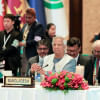
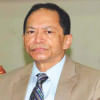
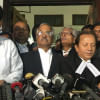
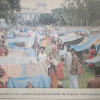


Comments